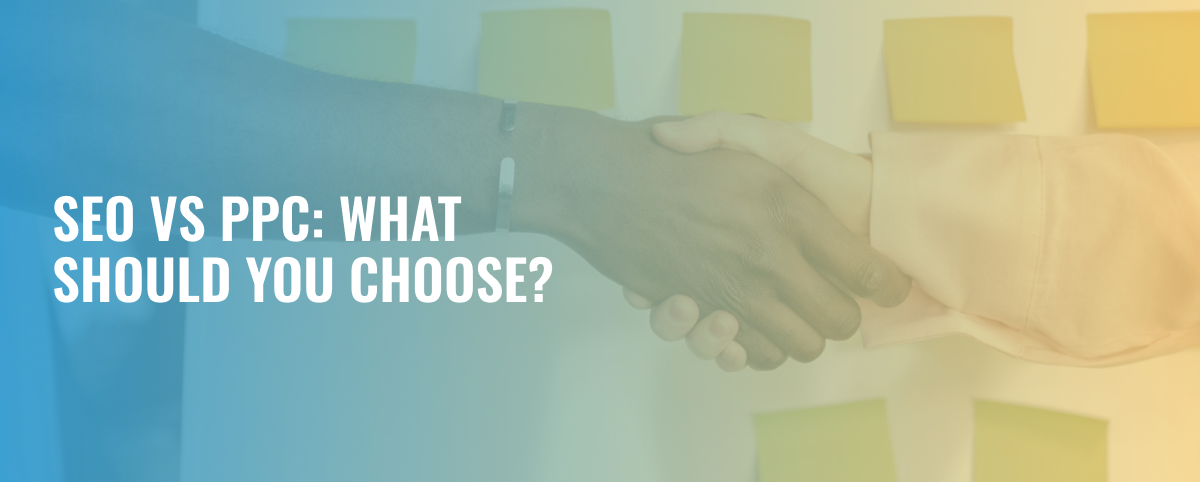8 minute read
SEO vs PPC: What Should You Choose?
In the ever-changing digital marketing landscape, two strategies stand out as essential to generating traffic and increasing visibility: Search Engine Optimization (SEO) and Pay-Per-Click (PPC) advertising. These methods have long been in competition with each other as companies and marketers debate the most effective approach. This debate will continue in 2024 as both strategies appear to have their specific differences, advantages, and disadvantages.
SEO focuses on optimizing organic search results by improving the content and structure of your website, while PPC involves bidding on keywords for the ads that appear on search engine results pages. Both solutions have their advantages and disadvantages, so it is extremely important for companies to understand their goals and their target audience to determine which approach best fits their marketing strategy.
WHAT IS SEO?
PROS AND CONS
One of the main benefits of SEO is that it can drive a significant amount of organic traffic to your website, resulting in increased brand awareness and potential conversions. Additionally, SEO can contribute to a better user experience by optimizing the structure and content of your website.
However, there are some downsides to consider, such as constant changes to search engine algorithms, which can impact your website’s ranking as well as the time and resources required for ongoing SEO activities. Another potential disadvantage is dependence on search engines, as any change in their algorithms can significantly impact website traffic.
BENEFITS
-
BUILDS ORGANIC TRAFFIC
By optimizing the content and structure of a website, SEO helps businesses rank higher on search engine results pages (SERPs). This leads to greater visibility and presence of the company and, consequently, an increase in website traffic. Unlike paid traffic, which requires ongoing investment, organic traffic is free and consistent, making SEO a profitable strategy for businesses in the long run.
-
LESS EXPENSIVE LONG-TERM
Compared to other marketing strategies such as pay-per-click (PPC) advertising, SEO is relatively inexpensive and provides a higher return on investment (ROI). Once an SEO strategy is implemented, the results can be long-lasting, making it a more sustainable and cost-effective approach for businesses to attract potential customers.
-
IMPROVES TRUST AND CREDIBILITY
Ranking high in search engines can increase a company’s trust and credibility among its target audience. When a website appears on the first page of search results, users perceive it as more trustworthy and credible. By optimizing their website and providing valuable and relevant content, companies can establish themselves as industry authorities, further building trust and credibility with their target audience.
-
MORE SUSTAINABLE FOR LONG-TERM GROWTH
SEO is a more sustainable strategy for long-term growth. By regularly monitoring and adapting their SEO strategy, businesses can maintain their website’s high ranking and continue to attract organic traffic. This consistency of visibility and website traffic provides a solid foundation for your company’s long-term growth and success.
DRAWBACKS
-
RESULTS AREN’T IMMEDIATE
One of the biggest disadvantages of SEO is that it is not a quick fix. Unlike PPC (Pay Per Click) advertising, where results are immediate, SEO takes time to demonstrate its impact. This is because it involves optimizing the content, code, and structure of the website to rank higher on search engine results pages. Competition for top positions is fierce and it can take weeks or even months before you see a significant improvement in website traffic and conversions.
-
COMPETITIVE KEYWORDS
Another problem with SEO is that it can be difficult to rank for highly competitive keywords. Since everyone uses SEO to improve the visibility of their website, competition for the best keywords is fierce. This means that website owners and marketers must invest a lot of time and effort into keyword research and optimization to outperform their competitors.
-
CONSTANT SEARCH ENGINE ALGORITHM UPDATES
Search engines like Google are constantly updating their algorithms, making it difficult to keep up with changes and adjust SEO strategies accordingly. A small change in the algorithm can have a significant impact on a website’s ranking, and website owners and marketers should be vigilant in following these updates to stay ahead.
-
TEDIOUS AND TIME-CONSUMING
SEO can be a tedious and time-consuming process. It requires a lot of research, planning, and implementing different tactics to improve a website’s ranking. This can be overwhelming for business owners and digital marketers who don’t have the experience or resources to dedicate themselves to SEO.
WHAT IS PAY-PER-CLICK?
BENEFITS
-
QUICK RESULTS
With PPC, businesses can see immediate results in terms of website traffic and conversions. Unlike other forms of advertising that can take time to produce results, PPC campaigns can increase website traffic within hours. This short turnaround time makes PPC an attractive option for companies with immediate goals such as Increasing sales or promoting a new product or service.
-
REACH THE RIGHT AUDIENCE
PPC offers advanced targeting options that help businesses reach their ideal audience based on factors such as location, demographics, interests, and search behavior. This targeted approach ensures that your ads are shown to users who are most likely to be interested in your company’s products or services, increasing your chances of conversion and maximizing your campaign’s ROI.
-
TOP OF SEARCH ENGINE RESULTS PAGES
One of the biggest benefits of PPC is the ability to appear at the top of search engine results pages. This excellent position gives companies the opportunity to stand out from the competition and attract the attention of potential customers. With effective ad copy and relevant keywords, businesses can achieve high click-through rates and increase traffic to their website.
DRAWBACKS
-
EXPENSIVE
Running a PPC campaign can be quite expensive. Businesses must pay for every click on their ad, regardless of whether it results in a sale or not. This means that without proper budgeting and tracking, a business can quickly outgrow its marketing spend with little return on investment. Small businesses and startups can find it extremely difficult to afford the increasing costs of PPC.
-
DOES NOT ALWAYS GENERATE PROFIT
While PPC can drive a significant amount of traffic to a website, there is no guarantee that this traffic will convert into paying customers. In fact, research has shown that most PPC ad clicks do not result in a sale. This means that a business may be paying for clicks that do not translate into profits, making the PPC campaign a financial burden rather than a benefit.
-
VISIBILITY IS TEMPORARY
One of the key benefits of PPC is its ability to quickly increase a business’s visibility on search engines. However, this visibility is temporary and depends on the company’s budget and keyword bid. Once the budget is exhausted or the campaign ends, the ads disappear and the company’s visibility decreases. On the other hand, investing in organic search engine optimization techniques can provide long-term visibility and sustainable traffic to a website.
WHY YOU SHOULD USE SEO AND PPC TOGETHER
SEO and PPC are two powerful marketing tools that are often used interchangeably, but they actually serve different purposes. While SEO focuses on generating organic traffic by optimizing your website’s content and structure, PPC involves paid search engine advertising. Both strategies have their strengths and weaknesses, so using them together can be extremely beneficial. SEO delivers long-term, sustainable results, while PPC enables immediate visibility and higher conversion rates. By using both techniques, companies can reach a wider audience and cover both ends of the marketing spectrum. This not only increases your chances of success, but also ensures a comprehensive online presence, which can translate into improved brand credibility and business development.
FINAL WORDS
The SEO vs PPC debate will continue to rumble on in 2024. While both strategies have their advantages and disadvantages, it is important for companies to carefully consider their goals and target audience before deciding which one to invest in. SEO offers long-term benefits and organic traffic, while PPC can provide immediate results and targeted reach. Ultimately, the best approach is to combine both tactics, as each can complement each other and help companies achieve their desired results. As technology and consumer behavior evolve, companies must remain adaptable and current to make the most effective decisions about their marketing efforts.

